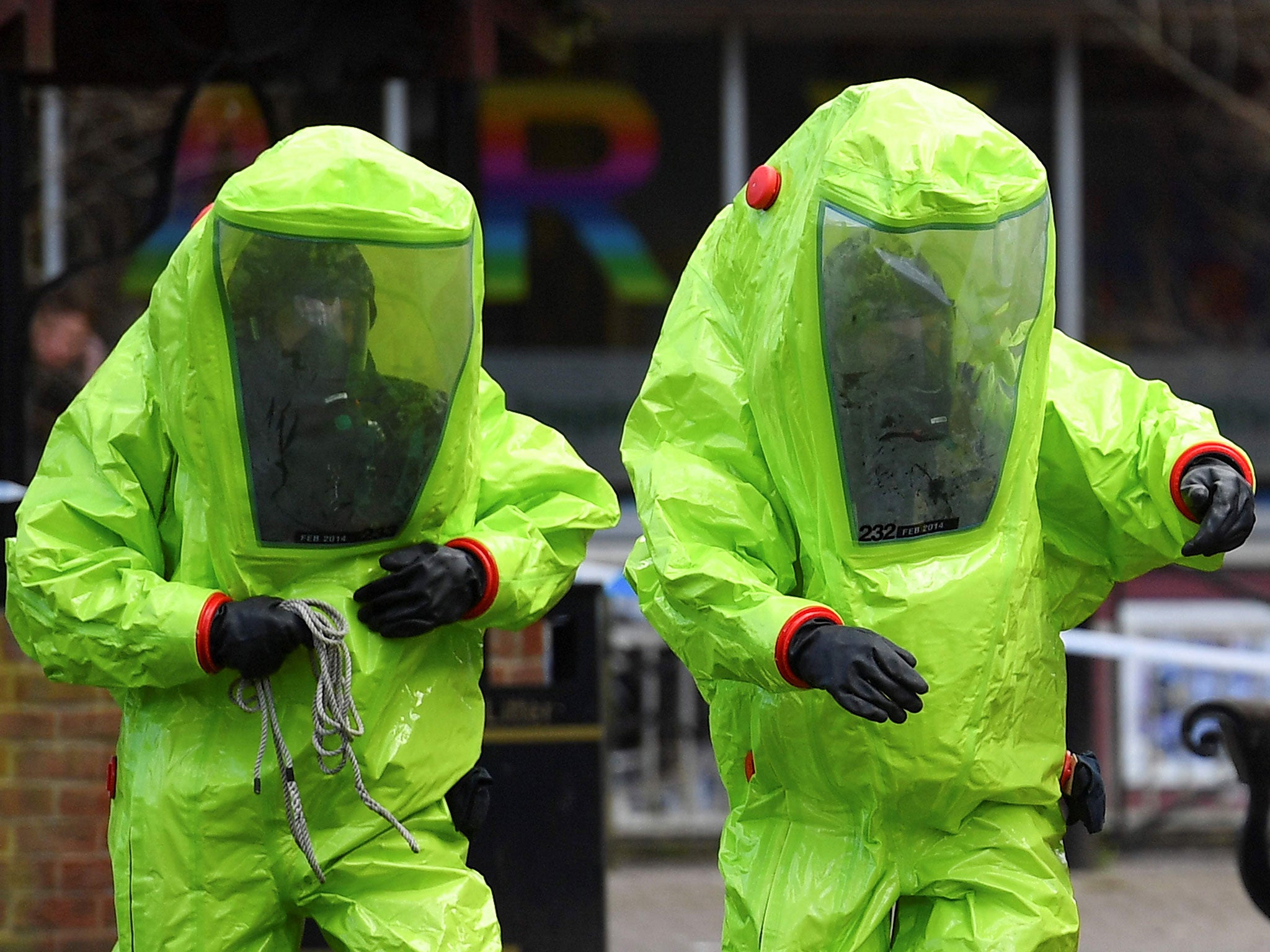Organisation for the Prohibition of Chemical Weapons to release findings on Salisbury nerve agent attack
Comes after Yulia Skripal turns down assistance from Russian embassy

The international chemical weapons watchdog's report on the Salisbury nerve agent attack is expected to be revealed, as a diplomatic battle continues to rage between the UK and Russia.
Former double agent Sergei Skripal and his daughter Yulia were poisoned with a nerve agent thought to have been ordered by Moscow more than a month ago, leaving the pair seriously ill in hospital.
The Foreign Office said it had asked the Organisation for the Prohibition of Chemical Weapons (OPCW) to release an executive summary of its findings on Thgursday.
It comes as Ms Skripal revealed she has rejected assistance from the Russian embassy, adding: "I want to stress that no one speaks for me, or for my father, but ourselves."
The 33-year-old said she has found herself in a "totally different life" as she continues to recover from the attack.
It is believed that British authorities immediately spirited Ms Skripal away to a secure location when she was discharged from hospital earlier this week.
The Russian embassy reacted angrily, suggesting in a series of tweets that the Russian national had been taken against her will.
The embassy is perturbed by a refusal from UK authorities to grant Ms Skripal's cousin Viktoria a visa to visit her family.
It escalated the war of words, saying in a series of statements posted on social media: "Secret resettlement of Mr and Ms Skripal, barred from any contact with their family will be seen as an abduction or at least as their forced isolation."
But Ms Skripal said in a statement: "I have specially trained officers available to me, who are helping to take care of me and to explain the investigative processes that are being undertaken.
"I have access to friends and family, and I have been made aware of my specific contacts at the Russian embassy who have kindly offered me their assistance in any way they can.
"At the moment I do not wish to avail myself of their services, but, if I change my mind I know how to contact them. Most importantly, I am safe and feeling better as time goes by, but I am not yet strong enough to give a full interview to the media, as I one day hope to do.
"Until that time, I want to stress that no one speaks for me, or for my father, but ourselves. I thank my cousin Viktoria for her concern for us, but ask that she does not visit me or try to contact me for the time being.
"Her opinions and assertions are not mine and they are not my father's."
A Foreign Office spokesman said it has asked the OPCW to distribute the report to all state parties to the Chemical Weapons Convention, including Russia.
"This transparent and open approach, which we have pursued from the outset, is in sharp contrast to the Russian state's ongoing tactics of obfuscation and distraction," the spokesman said.
The Kremlin has repeatedly attempted to challenge Britain's claims that it was responsible for the poisoning of the Skripals.
Theresa May has said that UK military experts at Porton Down found that they were poisoned by Novichok, a nerve agent developed by Russia, and that the only plausible explanation was that the Russian state was responsible.
Despite the denials from Moscow, Britain has received strong diplomatic backing from western allies for its stance, with more than 20 countries expelling in excess of 150 Russian diplomats in protest at the Russian actions.
Last week, a Russian call for a new joint investigation was voted down by 15 votes to six at a meeting of the OPCW executive council in The Hague.
Former double agent Mr Skripal was jailed in Russia for selling secrets to MI6 but was released as part of a spy swap deal in 2010 and settled in the UK.
It is hoped he will soon be fit for release from hospital, despite grave fears that the exposure to military-grade Novichok on March 4 would prove fatal.
Ms Skripal said she was treated with "such kindness" at Salisbury District Hospital, and is missing the staff there.
"I have left my father in their care, and he is still seriously ill. I too am still suffering with the effects of the nerve agent used against us. I find myself in a totally different life than the ordinary one I left just over a month ago, and I am seeking to come to terms with my prospects, whilst also recovering from this attack on me," she said.
Subscribe to Independent Premium to bookmark this article
Want to bookmark your favourite articles and stories to read or reference later? Start your Independent Premium subscription today.

Join our commenting forum
Join thought-provoking conversations, follow other Independent readers and see their replies